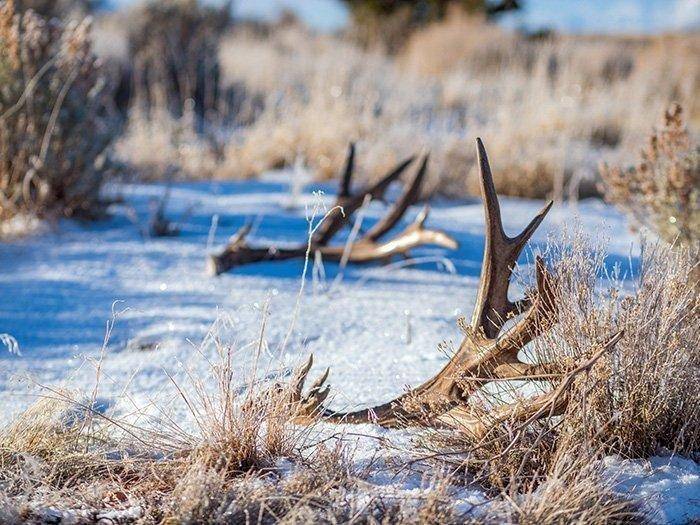DWR Press Release
Collecting antlers that fall off the heads of deer, elk and moose each winter is a popular pastime in Utah.
Before you head out the door to collect shed antlers, though, you must complete the Division of Wildlife Resources’ Antler Gathering Ethics course. You can take the free course at wildlife.utah.gov/shedantler.
After dropping their antlers, male deer, elk and moose will grow a new set starting this spring.
Gathering shed antlers
DWR Captain Justin Shirley says gathering shed antlers is a fun activity that your whole family can enjoy. Please remember, though, that late winter and early spring is a tough time of year for deer, elk and moose.
“During winter,” Shirley says, “big game animals, especially deer, often have a difficult time finding food. If you spook an animal and cause it to run, the animal has to use up fat reserves and energy it needs to make it through the winter.”
Also, from late winter through early spring, the habitat big game animals rely on in the winter is usually wet. “Because the soil is wet,” Shirley says, “it’s more at risk to damage.”
Fortunately, you can gather shed antlers without stressing the animals or damaging their habitat. “The free course will teach you how,” Shirley says.
Print your certificate
After you finish the course at wildlife.utah.gov/shedantler, you must print your certificate of completion and then carry it with you while you’re gathering antlers.
If you have young children, and you’ve completed the course, your children don’t need to complete it — your certificate will cover your kids too.
You must complete the course if you want to gather shed antlers between Feb. 1 and April 15. If you wait until April 15 or later to gather antlers, you don’t need to complete the course.
After you’ve completed the course, you can gather antlers across Utah. There are two exceptions, though:
- Many of the state’s wildlife management areas are closed in the winter and spring, to protect animals and their habitat.
- You must have written permission from the landowner before gathering antlers on private land.
Antlers attached to a skull
If you find a skull with the antlers or horns still attached, it’s possible the animal was poached. Do not pick up or move the skull, or disturb footprints or other evidence. Instead, please take the following steps:
- Take photos of the skull from a couple of angles
- Pinpoint the location of the skull (preferably its GPS coordinates)
- Report your find to a DWR office
- Provide key details in your report
The DWR will send a conservation officer to investigate. If it’s clear the animal died of natural causes, you might be allowed to keep your find.
More information
If you have questions about gathering shed antlers in Utah, call the nearest Division of Wildlife Resources office or the DWR’s Salt Lake City office at 801-538-4700.

